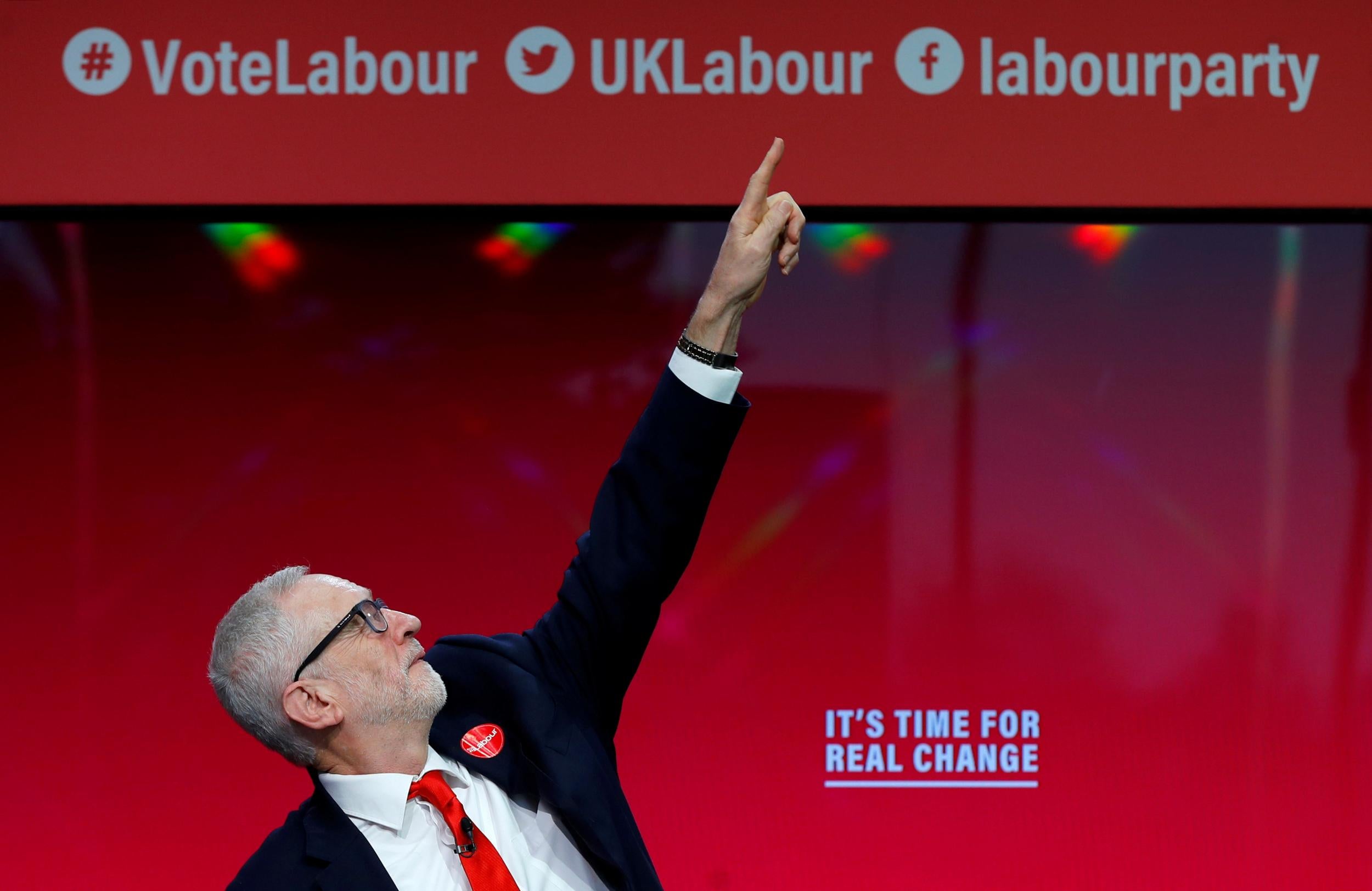Labour manifesto: Jeremy Corbyn vows to reverse public sector pay freeze with 5% boost for vital staff
In what would be a major boost to workers, the party vows to overturn the legacy of the Tory pay cap
Jeremy Corbyn declared war on the “rich and powerful” with a general election manifesto that raises £83bn in new taxes on corporations and the wealthy to fund free broadband, the abolition of university tuition fees and a 5 per cent pay rise for public-sector workers.
In a surprise move, the Labour leader announced an £11bn one-off windfall tax on oil and gas companies to pay for a “green industrial revolution” which he said would create a million environmental jobs and put the UK on track to achieve “the substantial majority” of necessary carbon emission reductions by 2030.
In a pugnacious address in Birmingham designed to breathe new life into Labour’s challenge for power and turn round its current deficit in the polls, Mr Corbyn said he was ready to accept “the hostility of the billionaires” in order to deliver what he termed “a manifesto of hope” for the bulk of the British people.
He said Labour’s programme would bring an end to a system “rigged” in favour of big corporations and the super-rich.
But Tories accused him of planning a “reckless spending spree”, while energy trade body OGUK warned that any additional taxes would “drive investors away and damage the long-term competitiveness of the UK’s offshore oil and gas industry”.
In a speech in which he confirmed Labour’s plan to renegotiate Brexit before a Final Say referendum in June, Mr Corbyn said he was setting out a fully costed plan to “rewrite the rules of our economy to work for the many, not the few”.
He confirmed plans to:
- Renationalise rail, mail, water and energy and part-nationalise BT to provide a free public broadband service
- Outstrip Tory spending plans on the NHS by boosting health funding by 4.3 per cent annually in real terms
- Abolish and replace Universal Credit
- Create a National Education Service, providing life-long learning.
He said Labour would introduce a “real living wage” of at least £10 an hour for over-16s, end zero-hours contracts and strengthen workers’ rights.
And he promised to reverse Tory restraint on public-sector pay by handing an immediate 5 per cent pay rise to vital staff such as nurses, teachers and firefighters, worth around £1,600 per person by April next year.
Above-inflation pay rises in the following years would increase pay packets to the pre-crash levels of 2007-08 in real terms.
According to Labour calculations, the measure would cost £5.3bn by 2023-24, funded through a range of tax hikes, including raising income tax for the richest 5 per cent and increasing corporation tax.
Mr Corbyn declared that Labour was “on your side” as he unveiled a string of radical plans that he claimed “the political establishment has blocked for a generation”.
He said: “We’ll deliver real change for the many and not the few. That’s what this manifesto is all about.
“And you really can have this plan for real change because you don’t need money to buy it.
“You just need a vote – and your vote can be more powerful than all their wealth.”

The manifesto was welcomed by public-sector union Unison, whose general secretary Dave Prentis said it was “restoring the funding snatched from public services by the Tories’ cold-hearted economic policies and gives dedicated public servants the wage rises they’ve been denied for so long”.
But business leaders warned the package risked being “too much stick and not enough carrot”.
Edwin Morgan, director of policy at the Institute of Directors, said most business leaders would have reservations that Labour’s “state-first” plans for the economy could “crowd out” rather than crowd in private enterprise.
Adam Marshall, of the British Chambers of Commerce, warned: “Excessive intervention in business governance and sweeping tax rises would suppress innovation and smother growth.”
The manifesto watered down some of the radical proposals demanded by activists at Labour conference to extend free movement, achieve zero carbon emissions by 2030 and abolish private schools, though aides insisted it was in line with motions passed in September.
Private schools will lose “tax loopholes” and see VAT imposed on fees, in a move that an industry group said would have “serious unforeseen consequences”, costing the taxpayer £416m as more than 100,000 children were moved to state schools because their parents could no longer afford private education.
Mike Buchanan, of the Headmasters’ and Headmistresses’ Conference, said: “Any further tax is putting politics before pupils and will have serious unforeseen consequences. It will hurt hard-working parents, drive up class sizes and pile further pressure on state school budgets. We are particularly worried about the effects on vulnerable children.”
Join our commenting forum
Join thought-provoking conversations, follow other Independent readers and see their replies
Comments
Bookmark popover
Removed from bookmarks